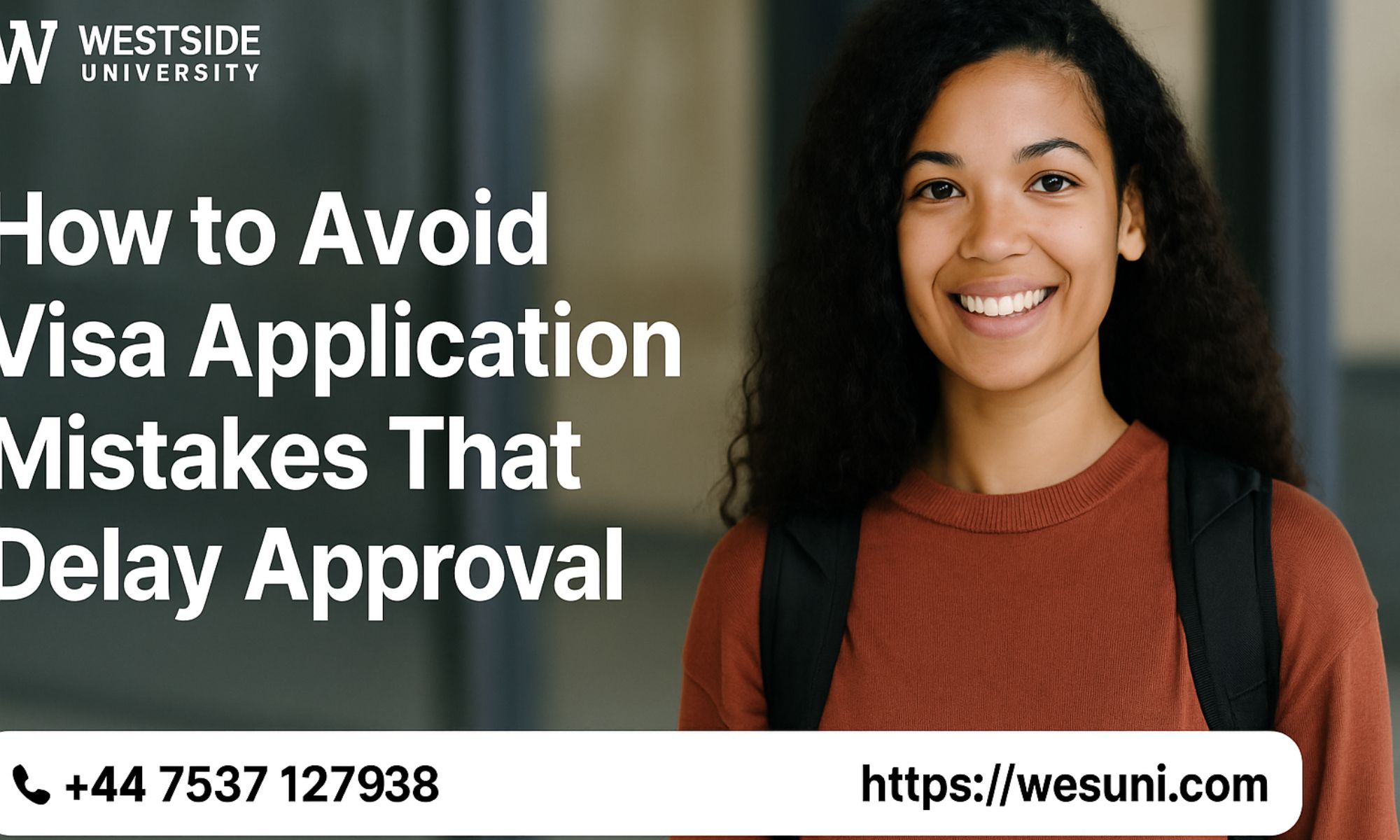For many international students, getting a student visa is the most important step in their study abroad journey. However, even the smallest mistakes in your visa application can lead to delays, rejections, or even denial of entry to your dream study destination. Understanding the process and avoiding common pitfalls is key to ensuring a smooth and timely approval.
In this guide, we’ll outline the most common visa application mistakes, explain why they happen, and provide practical tips to help you avoid them.
Why Visa Applications Are So Strict
Student visas are not just about studying—they also involve immigration policies that protect the host country. Visa officers carefully evaluate applications to ensure students:
- Have genuine study intentions.
- Can financially support themselves.
- Will follow the laws of the host country.
- Will return home after studies (unless legally transitioning to work/residency).
Because of these strict rules, even minor errors can cause processing delays.
Top Visa Application Mistakes to Avoid
1. Incomplete Application Forms
Leaving blanks on your visa form or forgetting to upload certain documents can immediately delay your application. Every section matters.
Tip: Double-check all fields before submitting. Use checklists provided by embassies or universities.
2. Incorrect or Missing Documents
Each country requires specific supporting documents, such as:
- Admission letter from your university.
- Proof of funds.
- Valid passport.
- Language test results (IELTS, TOEFL, etc.).
Tip: Carefully review the embassy’s official checklist. Missing even one page can result in rejection.
3. Financial Documentation Errors
Visa officers want proof that you can afford tuition and living costs. Errors include:
- Insufficient bank balance.
- Submitting outdated bank statements.
- Using accounts not in your name (unless supported by sponsor documents).
Tip: Maintain sufficient funds for at least 3–6 months before applying. Use official bank letters.
4. Applying Too Late
Visa processing can take weeks or months. Submitting late increases the risk of not getting approval before your semester starts.
Tip: Apply as soon as you receive your admission letter. Research your country’s visa timeline early.
5. Mismatched Information
Any discrepancies between your application and documents (such as name spelling, birth date, or academic history) can raise red flags.
Tip: Ensure your details match across your passport, transcripts, admission letter, and forms.
6. Not Meeting Language or Health Requirements
Some countries require:
- Proof of language proficiency (IELTS/TOEFL).
- Medical exams or vaccinations.
Tip: Schedule exams and medical checks early to avoid last-minute delays.
7. Ignoring Visa Interview Preparation
For countries that require interviews (e.g., USA), many students make mistakes like:
- Giving vague answers about study plans.
- Not knowing details about their chosen course/university.
- Appearing nervous or unprepared.
Tip: Practice interview questions, research your program, and answer with confidence.
8. Submitting Fake or Misleading Documents
Never attempt to cheat the system. Visa officers are trained to detect fraud, which can lead to permanent bans.
Tip: Always provide genuine, verifiable documents.
9. Not Paying the Correct Visa Fee
Paying the wrong amount or using an incorrect payment channel delays your application.
Tip: Use official embassy portals and keep receipts as proof.
10. Ignoring Follow-Up Communication
Sometimes embassies request additional documents or clarification. Many students miss deadlines because they don’t check emails regularly.
Tip: Monitor your email and application portal daily until your visa is approved.
Practical Tips for a Smooth Visa Application
- Start Early – Begin your application 3–6 months before departure.
- Stay Organized – Use a checklist and keep documents in labeled folders.
- Seek Guidance – Use your university’s international office or trusted consultants.
- Review Carefully – Proofread everything before submission.
- Prepare for Delays – Even if everything is correct, external factors may cause delays, so apply early.
Common Questions About Visa Applications
Q: Can I apply for a visa before getting my admission letter?
No, most countries require your official admission letter to start the visa process.
Q: What happens if my visa is delayed?
You can request a deferral from your university or apply for expedited processing if your country allows.
Q: Should I book flights before visa approval?
Avoid booking non-refundable flights until your visa is approved.
Final Thoughts
Visa applications may seem intimidating, but with careful planning, you can avoid mistakes that cause costly delays. Remember:
- Pay attention to details.
- Stay organized.
- Submit early.
By avoiding these errors, you’ll not only save time but also step into your study abroad journey with confidence.
🌍 Ready to start your study abroad process?
👉 Apply today at https://wesuni.com/apply


